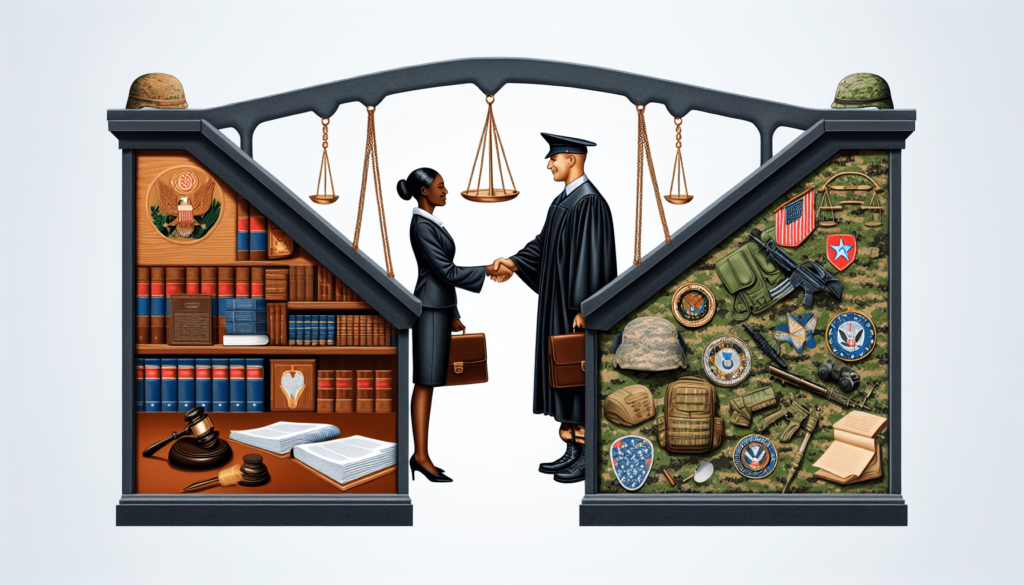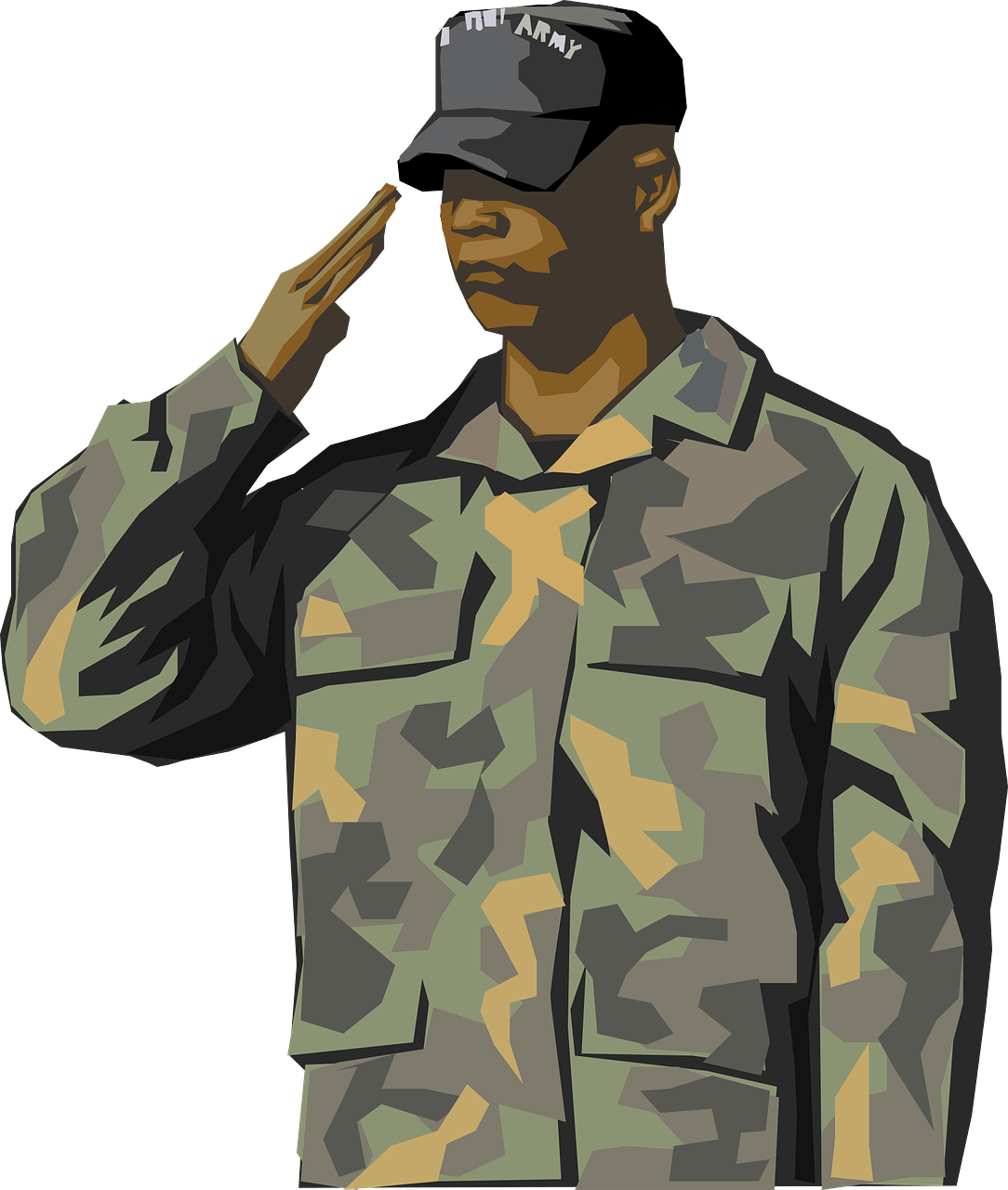In “Bridging the Gap: Veterans’ Legal Assistance and Support,” you’ll discover a robust sanctuary tailor-made for those who’ve valiantly served their country. Imagine a place where navigating the often complex maze of veterans’ benefits, healthcare, and financial aid is made simple, where you’re not just a number but a respected member of a vibrant community. This comprehensive platform sheds light on the vital resources available to veterans, offering expert guidance and empowering you to thrive in civilian life. Whether it’s pursuing further education, carving out a new career path, or seeking mental health support, you’ll find everything you need to start the next chapter of your life with confidence. Join us as we journey together, ensuring that the transition from service to civilian life is not just manageable but enriching, allowing every veteran’s voice to be heard and celebrated.
Understanding the Legal Challenges Faced by Veterans
Transitioning from military to civilian legal systems
Transitioning from a military to a civilian life can be a challenging period for many veterans, especially when it involves navigating the legal system. Unlike the military’s legal system, which you might be accustomed to, civilian law operates under different processes and principles. This shift can create confusion and sometimes legal issues if you’re not well-prepared for the transition.
Common legal issues encountered by veterans
As a veteran, you might face a range of legal issues upon your return to civilian life. These can include difficulties with employment, housing, family law matters, and misunderstandings about your benefits. Additionally, some veterans find themselves needing legal assistance with issues related to their service, such as the need to correct military records or address discharge status.
The impact of legal problems on veterans’ lives
The consequences of legal challenges can significantly impact your life and hinder your successful reintegration into civilian society. Legal problems can create barriers to employment, limit access to essential benefits, and strain personal relationships. Understanding and addressing these legal issues promptly is crucial to mitigate their effects and ensure a smooth transition to civilian life.
The Role of Veterans’ Legal Assistance Programs
Defining legal assistance for veterans
Legal assistance for veterans involves providing you with the necessary legal advice and representation to tackle the issues you may face post-service. This encompasses a wide range of services, from counseling on civil matters to representing veterans in court cases.
Overview of legal services provided
The legal services offered to veterans typically cover areas such as healthcare claims, benefits eligibility and appeals, housing issues, employment law, and education benefits disputes. These services are designed to help you navigate the complexities of the legal system and secure the rights and benefits you have earned.
How these programs support veterans beyond legal advice
Beyond offering legal counsel, veterans’ legal assistance programs play a vital role in your overall transition to civilian life. They provide educational resources to inform you of your rights and benefits, connect you with community support networks, and offer guidance on long-term planning for your career and personal development.

This image is property of pixabay.com.
Veterans’ Legal Rights
Understanding your legal rights as a veteran
As a veteran, you’re entitled to a range of rights and protections under federal law. This includes protection against discrimination based on your service, priority access to government jobs, and rights concerning healthcare and education benefits.
Protection against discrimination
You’re protected against discrimination in hiring, employment, and when accessing public services and accommodations. This ensures you’re treated with the respect and fairness you deserve in recognition of your service to the country.
Access to healthcare and benefits
One of your most critical rights is access to healthcare and benefit programs specifically designed for veterans. Navigating these systems can be complex, but understanding your entitlements is the first step to accessing the support you need for yourself and your family.
Navigating the VA Benefits System
Eligibility criteria for VA benefits
To access VA benefits, you need to meet specific eligibility criteria, which typically involve your period of service, discharge status, and, in some cases, your health conditions. Understanding these requirements is crucial to accessing the support available to you.
Steps to apply for VA benefits
Applying for VA benefits involves submitting a claim with the necessary documentation of your service and any health conditions related to your service. The process can be lengthy, but knowing the steps involved can help streamline your application and avoid delays.
Appealing a VA decision
If your claim for benefits is denied, or you disagree with the decision, you have the right to appeal. The appeals process can be complex and time-consuming, so it may be beneficial to seek legal assistance to navigate it effectively.

This image is property of pixabay.com.
Disability Claims and Compensation
Filing for disability claims
Filing a disability claim with the VA is an essential step for many veterans suffering from service-related health issues. The process involves gathering and submitting comprehensive documentation of your condition and how it relates to your service.
How compensation is determined
The VA determines compensation based on the degree of your disability, which is rated on a percentage scale. Understanding how this scale works and how it relates to your compensation can be crucial in ensuring you receive the benefits you’re entitled to.
Challenges in the claims process
The disability claims process can be fraught with challenges, including lengthy wait times and the need for extensive documentation. Navigating these challenges requires patience and persistence, and it’s often helpful to seek specialized legal assistance.
Legal Support for Homeless Veterans
Legal barriers to housing for veterans
Homelessness among veterans is a pressing issue, with legal barriers often contributing to the problem. Issues such as eviction, foreclosure, and legal disputes can leave veterans without stable housing, necessitating targeted legal support.
Programs targeting homelessness among veterans
Several programs aim to address and reduce homelessness among veterans by providing legal assistance, housing support, and resources to address underlying issues such as substance use and mental health.
Success stories of reintegration
There are many inspiring success stories of veterans overcoming homelessness through legal support and reintegration programs. These stories highlight the crucial role of targeted legal assistance and the positive outcomes it can achieve.

This image is property of pixabay.com.
Addressing Mental Health and Substance Use
The intersection of legal issues, mental health, and substance use
Mental health and substance use disorders can lead to legal issues for veterans, including criminal charges and civil disputes. Addressing these underlying health issues is often a critical component of resolving the legal challenges you may face.
Legal resources for mental health and substance support
Several legal resources are available to help veterans dealing with mental health and substance use disorders. These include diversion programs, specialized courts, and legal assistance designed to address the unique needs of veterans facing these challenges.
Veterans’ treatment courts
Veterans’ treatment courts are specialized court programs that provide support and rehabilitation for veterans involved in the criminal justice system due to mental health or substance use disorders. These courts focus on treatment and recovery, offering a path to address both legal issues and underlying health concerns.
Employment Law and Veteran Rights
Understanding veterans’ rights in the workplace
As a veteran, you have specific rights in the workplace, including protection against discrimination and entitlement to leave for medical treatment or recovery. Understanding these rights is key to ensuring fair treatment in your employment.
Challenges veterans face in employment
Despite legal protections, veterans can face challenges in employment, including misconceptions about their skills and the impact of service-related disabilities. Addressing these challenges often requires advocacy and support to ensure your rights are respected.
Legal recourse for discrimination and unjust treatment
If you face discrimination or unjust treatment in the workplace, there are legal recourses available to you. This can include filing complaints with government agencies or pursuing legal action to protect your rights and achieve fair treatment.

Educational Benefits and Legal Support
Using GI Bill benefits
The GI Bill provides significant educational benefits to veterans, helping you pursue higher education or training post-service. Navigating the eligibility requirements and application process is essential to maximize these benefits.
Legal assistance in navigating education benefits
Legal assistance can be invaluable in navigating the complexities of education benefits, helping you address disputes with educational institutions or resolve issues related to your benefit entitlements.
Solving disputes with educational institutions
Disputes with educational institutions over benefits, admissions, or accommodations can impede your academic and career goals. Legal support can help resolve these disputes and ensure your rights as a veteran are upheld.
Future Directions in Veterans’ Legal Assistance
Emerging trends in legal assistance for veterans
The landscape of legal assistance for veterans is continually evolving, with emerging trends focusing on holistic support, technology-driven solutions, and targeted programs for specific veteran populations.
Innovations in legal services delivery
Innovations in the delivery of legal services, including online platforms, mobile apps, and virtual legal clinics, are making it easier for veterans to access the support they need, when and where they need it.
The impact of technology on veterans’ legal support
Technology plays a crucial role in transforming how veterans access legal support, offering new opportunities for empowerment, education, and connection. As these technological solutions evolve, they promise to further bridge the gap between veterans and the legal assistance vital to their successful reintegration into civilian life.

